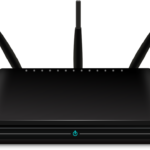When browsing the Internet, you are often unaware of what’s going on in the background. Cyber criminals are constantly lurking around to steal your data and identity. The consequences of these entities can be concerning. Protecting your privacy is essential to ensure your data is safe and secure.
Proxy servers and VPNs (Virtual Private Networks) are security services that allow you to connect over a public network securely. Connecting through either service makes your location incomprehensible to a potential threat. This is accomplished by redirecting your IP address. Basically, their purpose is the same. What differs is their implementation.
Here are three major differences between a Proxy and a VPN.
- Encryption
A proxy server hides your actual IP address and displays another from a different geographic location. Any restrictions in your location will not be applicable and therefore you are able to access data freely. For example, you, from the United States, want to watch a show that streams only in the United Kingdom. All you have to do is connect to a proxy server in the UK and stream away. Proxy servers do not encrypt your data, so it is still vulnerable to security attacks.
A VPN, on the other hand, encrypts the entire stream of data passing through your network. Unlike the proxy server, which only hides your IP, traffic to and from all applications on your computer are secured by the VPN.
- Application
Proxy servers can be used for low-risk applications such as watching videos, playing games, bypassing IP-based restrictions or accessing censored content. Most of these applications deal with the geography of the content being accessed. They are used as needed and only for that particular application.
VPNs are recommended for high-risk applications where there is a chance of private data being intercepted. If you are working from a remote location and want to connect to your office network or you want to make large financial transactions over the Internet, then you need a VPN. With it, your entire computer is encrypted rather than a single application.
- Security
There is no guarantee of security with a proxy server. Your data is still vulnerable and anyone can easily intercept it. Your data is merely redirected, so a person who has access to your data stream can track your activities.
When it comes to VPN, apart from your VPN provider, no one can see what you are doing online, not even your Internet service provider. Even government surveillance and seasoned hackers will not be able to touch your data.







